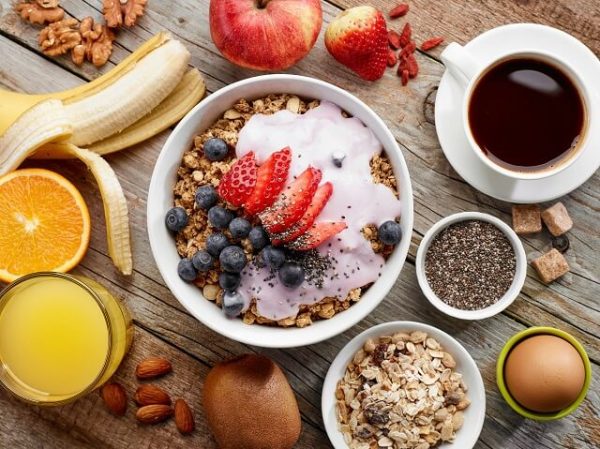Spread the love
Covid-19 pandemic is bringing cities and countries to halt and forcing us to change the way we live and work.
Banin Shanine, Nutrition Manager at Fitness First shares her top tips on how to eat right and embrace a healthy diet, taking it one bite at a time – while you are working from home.
With gyms and fitness clubs across the country temporarily closed for the rest of the month, it is important to re-evaluate our health goals and focus on nutrition and good eating habits.
RELATED: GCC Residents Wary of Coronavirus Threat: Survey Reveals
There are a myriad of ways that nutrition can impact health and overall well-being. Now is the time to adopt a healthy diet and take advantage of proper nutrition, to keep your immune system up and balance out the changes to your workout routine.
RELATED: Five Simple Rules for a Healthy Lifestyle
Proper nutrition focuses on the importance of making informed food choices and developing sound eating and active habits. Quality nutrition is never restrictive. Keeping a healthy diet is not about strict limitations or attaining unrealistic body standards, it’s about feeling great, having more energy, improving your health, and boosting your mood.
RELATED: VIDEO: “Health Matters with Dr Adam” Campaign Focus on Health and Wellness
Even the smallest changes to a diet can have a cumulative effect on health over time, as every healthy nutritional choice is a step in the right direction.
Keep your diet varied
An adequate healthy lifestyle begins with consuming a balanced diet, containing healthy ingredients from all food groups, namely, carbohydrates, protein, healthy fats and vegetables. Your body requires carbohydrates for energy, protein for growth and repair and vegetables for healthy metabolism, while good fats like avocado and olive oil help absorb nutrients for nourishments.
TIP: An ideal plate should consist of half vegetable, quarter carbs and quarter protein.
Practice portion control
To lead a healthy lifestyle, it is important to take portion control into consideration. Eat larger portions of low-calorie, nutrient-dense rich foods, like fruits and vegetables. Use small plates or bowls to regulate your portions and avoid processed or sugary foods, as these can lead to higher cholesterol levels.
TIP: Prep your meals each week to ensure that your portions remain consistent. Choose healthy recipes to make during the week and use a grocery list to avoid purchasing unhealthy foods.
Get into a ‘healthy breakfast groove’
Considered as the most essential meal of the day, breakfast should not be skipped as it sets the tone for the whole day. It not only provides the fuel necessary to complete daily activities but, as recent studies show, consuming breakfast greatly decreases hunger and cravings throughout the day and helps avoid unnecessary calorie intake.
A fibre rich meal is best for breakfast as it keeps you fuller during the morning and ensures that your blood sugar levels do not drop. It keeps your insulin levels healthy to prevent sugar binges or extreme fatigue. A fibre-filled breakfast can even improve your weight as it helps change the way your metabolism functions over the course of the day.
Develop ‘healthy rituals’
According to recent studies, more than 70% of our daily salt intake comes from prepared and processed foods. Be kind to your body and reacquaint yourself with healthy eating and fitness habits. Replace your unhealthy staples with smart health choices for a healthier body. Cut down on processed foods to trim added sugars, salt and fat. There’s tons of alternative recipes and delicious healthy snacks to choose from if you get cravings.
Stay hydrated
It is vital to stay hydrated with a recommended water intake of 6 – 8 ounces a day, depending on your bodyweight.
TIP: Always carry a water bottle around with you. Not only is it sustainable but it also serves as a gentle reminder to drink more water.
Be active
Remember, nutrition fuels fitness. A healthy and consistent workout routine goes a long way to compliment good nutrition. Try and commit to a minimum of 30 minutes of daily exercise, consisting of cardio, some form of loaded resistance and bodyweight exercises. There are many suitable workouts that can be done in the comfort of your home.
TIP: Begin with jumping jacks or opt for a few reps with a skipping rope as a form of cardio. Improvise with 2 kg bottles of milk and other household items to replace free weights in your routine.



